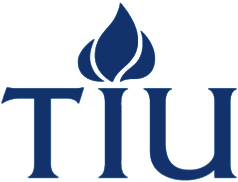
The Henry Center hosted its fifth annual
Dabar Conference on June 10–12th. As a program of the
Creation Project, the Dabar Conference seeks to orient evangelical scholars to recent work in the natural sciences and promote scholarship in the field of the doctrine of creation. The conference crosses disciplinary, institutional, and denominational lines in an effort to address the pressing issues that face Christians committed to the classical Christian doctrine of creation in a scientific age.
The theme of this year’s Dabar Conference was “God Saw That It Was Good: Uniting the Moral and Natural Order.” The goal was to bring biblical and theological considerations into constructive dialogue, tying in insights from disciplines such as biology and social and moral psychology to address the Christian conviction of creation’s goodness. To this end, issues covered in the featured
papers included the meaning of God calling creation “good” in Genesis, the emergence of sin in Romans, the status of suffering and death in biology, and natural beauty in Greek Patristic thought. Following the papers, one discussion and debate point was the status of non-moral goods — things that have functional, informational, or aesthetic value.
Affirming the goodness of creation in the midst of a global pandemic is not as straightforward as it might normally be. When viral diseases and all the pain connected to them cannot be ignored, how should Christians think about the repeated refrain of Genesis 1: God saw that it was good? More specifically, what does the Bible say about the relationship between moral and natural goodness? These are the sorts of questions that the group of evangelical scholars gathered at the Dabar Conference set their minds to throughout the three-day event.
“The Dabar Conference is the most productive academic conference I attend.
Bringing together specialists from a diverse range of fields, all sharing a commitment to
engaging the doctrine of creation with intellectual humility and integrity in the face of
contemporary challenges, Dabar is opening up exciting new pathways of discovery and
synthesis.”
— Gavin Ortlund
Even in normal years, the format of the Dabar Conference is out of the ordinary for academic conferences. Dabar is a “working” conference: the academic papers are circulated to participants prior to the event, and the bulk of time is dedicated to discussing the concepts and arguments advanced in those compositions. Each work receives two formal responses, most often from a peer within the author's field and another scholar outside it, followed by a formal response from the author. The sessions are then opened up for forty-five minutes of questions from the floor.
“This is an extraordinarily fruitful approach,” one Dabar participant said. “Interdisciplinary scholarship is difficult, and requires working outside the narrow silos where most academics are comfortable. Receiving substantive feedback from scholars across the disciplines is an invaluable resource for this sort of work.”
Geoffrey Fulkerson, Director of the Henry Center, agreed: “The Dabar Conference is always a highlight of my year. It is such a joy to see this visible demonstration of the unity of Christ even in the face of real disagreements. I pray that this event continues to bear fruit well beyond the few days that we shared together.”
Because of Covid-19, this year’s Dabar Conference was hosted entirely online. While some previous Dabar participants voiced regret over not meeting in person, the platform also allowed for new and creative opportunities regarding global scholarship. For example, this year the Henry Center was privileged to partner with the Institut Biblique de Nogent just outside of Paris, which brought together a team of Francophone theologians and scientists from across continental Europe to participate in the conference. A number of participants also noted that the online format allowed for easily sharing articles, essays, and book recommendations throughout the conference.
“Dabar is always a catalyst for my thinking about biblical interpretation and the sciences. I am hard-pressed to find a group of Christian scholars more dedicated to challenging each other to think deeply about a whole range of topics, with the shared goal of reading Scripture faithfully.”
— Michelle Knight
While there is much work that remains to be done, optimism ran high about the prospects for future progress. Michelle Knight, Assistant Professor of Old Testament and Semitic Languages at TEDS, recounted, “Dabar is always a catalyst for my thinking about biblical interpretation and the sciences. I am hard-pressed to find a group of Christian scholars more dedicated to challenging each other to think deeply about a whole range of topics, with the shared goal of reading Scripture faithfully. At their best, these conversations embody the very heart of the Christian vocation: striving to know God truly and worshipfully.”
Gavin Ortlund, pastor of First Baptist Church of Ojai and 2017–18 Henry Resident Fellow, concurred: “The Dabar Conference is the most productive academic conference I attend. Bringing together specialists from a diverse range of fields, all sharing a commitment to engaging the doctrine of creation with intellectual humility and integrity in the face of contemporary challenges, Dabar is opening up exciting new pathways of discovery and synthesis.”
The next and sixth Dabar Conference is scheduled for June 2022. The conference is set to address issues in theological anthropology: what Christians believe about humanity in light of the natural sciences. Until then, the Henry Center will host public lectures and a
resident research fellowship to explore the pressing issues that face the church on this crucial tenet of Christian faith.

